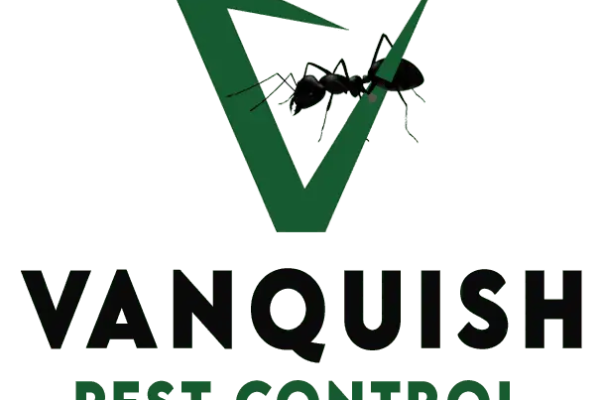The phrase “best book publishing company” still rings with echoes of the Big 5. You know the names: Penguin Random House, HarperCollins, Simon & Schuster, and their formidable cousins. They’re the skyscrapers on the literary skyline. Towering, imposing, immovable.
But here’s the thing: not every story was meant to be told in the shadow of a skyscraper.
In 2025, the publishing world is cracking open as best as possible. New players. Niche presses. Indie houses don’t just publish books. They nurture them. As someone who’s spent time in glossy boardrooms and dusty indie storefronts, I’ve seen the quiet revolution firsthand. And let me tell you: the most exciting voices aren’t echoing through corporate hallways. They’re coming from the margins.
When Small Is Mighty: Why Independent Publishers Are Winning Hearts and Shelves
Let’s be direct. The Big 5 weren’t built for nuance. They do scale, spectacle, and reach. But if your manuscript doesn’t tick the right boxes, market-tested tropes, “broad appeal,” and clean comps, you might find yourself on the outside looking in.
Independent publishers? They live for the outliers. The odd ducks. The quiet storm books that don’t shout but still shake you.
A client of mine, an author of a hybrid historical-fantasy novella that blended Yoruba cosmology with 1920s Harlem, was told by a major house that her story was “genre-confused.” A small Brooklyn-based press snapped it up. The book went on to be shortlisted for three indie awards. Why? Because the right publisher got it. For her, that press was the best book publishing company.
Agility, intimacy, and risk tolerance are what the best of the indie world brings. A 2024 report from IBPA (Independent Book Publishers Association) noted that micro-presses grew 13% in output last year. These aren’t vanity projects; they’re ecosystem builders. And they’re thriving because they don’t treat authors like line items.
Genre-Specific Goldmines: The Rise of the Specialist Press
The world isn’t crying out for another generic thriller, but try pitching a historical romance set during the Armenian resistance or a speculative novella written in epistolary verse. Good luck.
Unless, of course, you go niche.
In 2025, boutique publishers are flourishing in deep, narrow grooves: queer sci-fi, diasporic memoir, and Indigenous eco-poetry. They know their readers, their market, and that mass appeal often waters down what makes a book unforgettable.
Take Tin House. Their literary fiction roster reads like a syllabus for the MFA program of your dreams. Or Iron Circus Comics, whose crowdfunding-first model is rewriting what success looks like in the graphic novel space. Readers aren’t just buying books. They’re buying into movements.
Innovation Isn’t Just for Silicon Valley
AI in publishing? Oh yes, it’s here. And no, it’s not writing your next novel (though it might flag your passive voice in chapter seven).
What’s compelling is how smaller publishers use AI not to replace editors but to enhance their decision-making. Predictive analytics to forecast niche reader interest. Marketing automation to reach micro-communities. Even intelligent typesetting that adjusts layouts for dyslexic readers. A 2024 PwC industry report shows that nearly 47% of independent publishers leverage AI tools to reduce overhead and optimize outreach.
But tech’s not just backend stuff. The direct-to-consumer (D2C) wave is gaining traction. Authors and indie partners realize they don’t need Barnes & Noble to sell 10,000 copies. A compelling newsletter and a loyal Substack audience, and suddenly, you’re in a real business with higher margins. Better data. More freedom.
And then there’s audio. Remember when audiobooks felt like an afterthought? Now, they’re often first in line. According to the Audio Publishers Association, Digital audio saw a 23.8% jump this year alone. Smart publishers commission audiobooks with full casts and soundscapes before print galleys go out. It’s not a pivot. It’s a priority.
Green Is the New Black: Sustainability & Print-on-Demand
Remember when sustainability in publishing was just a bullet point in a press kit? Now it’s a deal-breaker.
A new wave of publishers is ditching the warehouse model. Print-on-demand (POD) isn’t just cheaper; it’s greener. And it lets small houses keep backlists alive without drowning in unsold inventory. That novel you wrote about bioluminescent fungi and loneliness? Still available. Still relevant. Still on someone’s radar.
And don’t overlook packaging. Soy-based inks, recycled paper, and biodegradable wrap are not just about optics. It’s about readers who care and publishers who get it. If you’re environmentally conscious, the best book publishing company for you probably prints on demand and leads with a sustainability-first ethos.
So… Where Do You Find These Unicorns?
Honestly? Start by turning over the book you love and checking the spine.
A lot of indie presses don’t advertise in the traditional sense. They don’t need to. Their books speak louder. In the acknowledgments section, authors often shout out editors and publishers who championed them. That’s gold.
Go to literary festivals. The weird ones. The ones in church basements or virtual Discord servers. Read the journals that look stapled by hand (because they probably were). That’s where the next wave is crashing.
And don’t sleep on mission-driven publishers. Some are built around queer storytelling. Others focus on working-class narratives or multilingual works. They exist. They’re incredible. And they’re waiting for stories like yours.
Final Word: The Best Book Publishing Company? It Depends.
Frankly, most guides get this wrong. They try to crown a universal “best.” But what’s best for your story might be a tiny, two-person outfit in Portland that only prints on hemp paper. Or a Paris-based press that specializes in immigrant surrealism.
The landscape in 2025 is wild, weird, and wide open. You don’t need a foot in the door of a skyscraper. You need the right window.
And maybe, just maybe, that window leads to a garden.
So dig in. The soil’s fertile.






